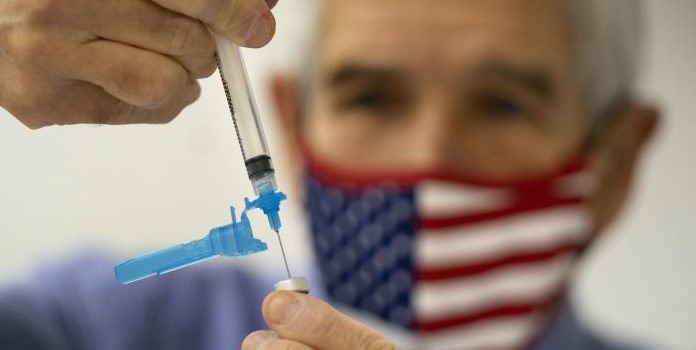(Headline USA) A new study from the United Kingdom found that 92% of all COVID-related deaths were from fully vaccinated people.
Earlier this month, the Office for National Statistics, a UK government agency, published data on COVID deaths from the start of the pandemic to Dec. 31, 2022. The numbers show that in May 2021 there were the lowest number of COVID-19 deaths. Eighty-four of those deaths were among the unvaccinated population, while 205 were among the vaccinated. Fast forward to May 2022 and deaths spiked by 450%, with 1,494 among the vaccinated and just 96 among the unvaccinated.
Between April 1, 2022 and December 31, 2022, there were 17,150 COVID deaths, 13,116 of which were among the vaccinated, and 4,034 of which were among the unvaccinated.
In total, fully vaccinated adults have accounted for 86%, or 9 out of every 10 COVID deaths in the UK over the past two years.
Public health officials’ efforts to force boosters on everyone seemed to make the situation worse, according to the data. Between Jan. 1, 2022 and Dec. 31, 2022, there were 28,041 COVID deaths in England — 25,758 of those deaths were among the fully vaccinated population, while just 2,273 deaths were among the unvaccinated population.
Here in the U.S., there is reason to believe public health officials have hid the potential side effects of the jab from the public. In January, for example, the Centers for Disease Control and Prevention and the Food and Drug Administration finally got around to announcing that it had discovered last November that the updated Pfizer coronavirus vaccine booster could be causing strokes in people 65 and older, sparking concerns dire enough to prompt the agencies to launch an investigation.
The ischemic stroke risks identified by the CDC happen when blood flow to the brain is significantly lowered, which has led to concerns that it could also impact other vascular issues, specifically heart attacks, which are also caused by artery blockage.
“This is what was feared all along. These are experimental shots with unknown short-term and long-term side effects,” Rep. Andy Biggs, R-Ariz., tweeted following the delayed disclosures from the CDC.

